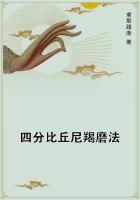As the happy months went by she was never idle. Nor was Billy forgotten. When the cold weather came on she knitted him wristlets, which he always religiously wore from the house and pocketed immediately thereafter. The two sweaters she made for him, however, received a better fate, as did the slippers which she insisted on his slipping into, on the evenings they remained at home.
The hard practical wisdom of Mercedes Higgins proved of immense help, for Saxon strove with a fervor almost religious to have everything of the best and at the same time to be saving. Here she faced the financial and economic problem of keeping house in a society where the cost of living rose faster than the wages of industry. And here the old woman taught her the science of marketing so thoroughly that she made a dollar of Billy's go half as far again as the wives of the neighborhood made the dollars of their men go.
Invariably, on Saturday night, Billy poured his total wages into her lap. He never asked for an accounting of what she did with it, though he continually reiterated that he had never fed so well in his life. And always, the wages still untouched in her lap, she had him take out what he estimated he would need for spending money for the week to come. Not only did she bid him take plenty but she insisted on his taking any amount extra that he might desire at any time through the week. And, further, she insisted he should not tell her what it was for.
"You've always had money in your pocket," she reminded him, "and there's no reason marriage should change that. If it did, I'd wish I'd never married you. Oh, I know about men when they get together. First one treats and then another, and it takes money.
Now if you can't treat just as freely as the rest of thcm, why I know you so well that I know you'd stay away from them. And that wouldn't be right ... to you, I mean. I want you to be together with men. It's good for a man."
And Billy buried her in his arms and swore she was the greatest little bit of woman that ever came down the pike.
"Why," he jubilated; "not only do I feed better, and live more comfortable, and hold up my end with the fellows; but I'm actually saving money--or you are for me. Here I am, with furniture being paid for regular every month, and a little woman I'm mad over, and on top of it money in the bank. How much is it now?"
"Sixty-two dollars," she told him. "Not so bad for a rainy day.
You might get sick, or hurt, or something happen.
It was in mid-winter, when Billy, with quite a deal of obvious reluctance, broached a money matter to Saxon. His old friend, Billy Murphy, was laid up with la grippe, and one of his children, playing in the street, had been seriously injured by a passing wagon. Billy Murphy, still feeble after two weeks in bed, had asked Billy for the loan of fifty dollars.
"It's perfectly safe," Billy concluded to Saxon. "I've known him since we was kids at the Durant School together. He's straight as a die."
"That's got nothing to do with it," Saxon chided. "If you were single you'd have lent it to him immediately, wouldn't you?"
Billy nodded.
"Then it's no different because you're married. It's your money, Billy."
"Not by a damn sight," he cried. "It ain't mine. It's ourn. And I wouldn't think of lettin' anybody have it without seein' you first."
"I hope you didn't tell him that," she ssid with quick concern.
"Nope," Billy laughed. "I knew, if I did, you'd be madder'n a hatter. I just told him I'd try an' figure it out. After all, I was sure you'd stand for it if you had it."
"Oh, Billy," she murmured, her voice rich and low with love;
"maybe you don't know it, but that's one of the sweetest things you've said since we got married."
The more Saxon saw of Mercedes Higgins the less did she understand her. That the old woman was a close-fisted miser, Saxon soon learned. And this trait she found hard to reconcile with her tales of squandering. On the other hand, Saxon was bewildered by Mercedes' extravagance in personal matters. Her underlinen, hand-made of course, was very costly. The table she set for Barry was good, but the table for herself was vastly better. Yet both tables were set on the same table. While Barry contented himaelf with solid round steak, Mercedes ate tenderloin. A huge, tough muttonchop on Barry's plate would be balanced by tiny French chops on Mercedes' plate. Tea was brewed in separate pots. So was coffee. While Barry gulped twenty-five cent tea from a large and heavy mug, Mercedes sipped three-dollar tea from a tiny cup of Belleek, rose-tinted, fragile as all egg-shell. In the same manner, his twenty-five cent coffee was diluted with milk, her eighty cent Turkish with cream.
"'Tis good enough for the old man," she told Saxon. "He knows no better, and it would be a wicked sin to waste it on him."
Little traffickings began between the two women. After Mercedes had freely taught Saxon the loose-wristed facility of playing accompaniments on the ukulele, she proposed an exchange. Her time was past, she said, for such frivolities, and she offered the instrument for the breakfast cap of which Saxon had made so good a success.
"It's worth a few dollars," Mercedes said. "It cost me twenty, though that was years ago. Yet it is well worth the value of the cap."
"But wouldn't the cap be frivolous, too?" Saxon queried, though herself well pleased with the bargain.
"'Tis not for my graying hair," Mercedes frankly disclaimed. "I shall sell it for the money. Much that I do, when the rheumatism is not maddening my fingers, I sell. La la, my dear, 'tis not old Barry's fifty a month that'll satisfy all my expensive tastes.
'Tis I that make up the difference. And old age needs money as never youth needs it. Some day you will learn for yourself."
"I am well satisfied with the trade," Saxon said. "And I shall make me another cap when I can lay aside enough for the material."
"Make several," Mercedes advised. "I'll sell them for you, keeping, of course, a small commission for my services. I can give you six dollars apiece for them. We will consult about them.
The profit will more than provide material for your own."













